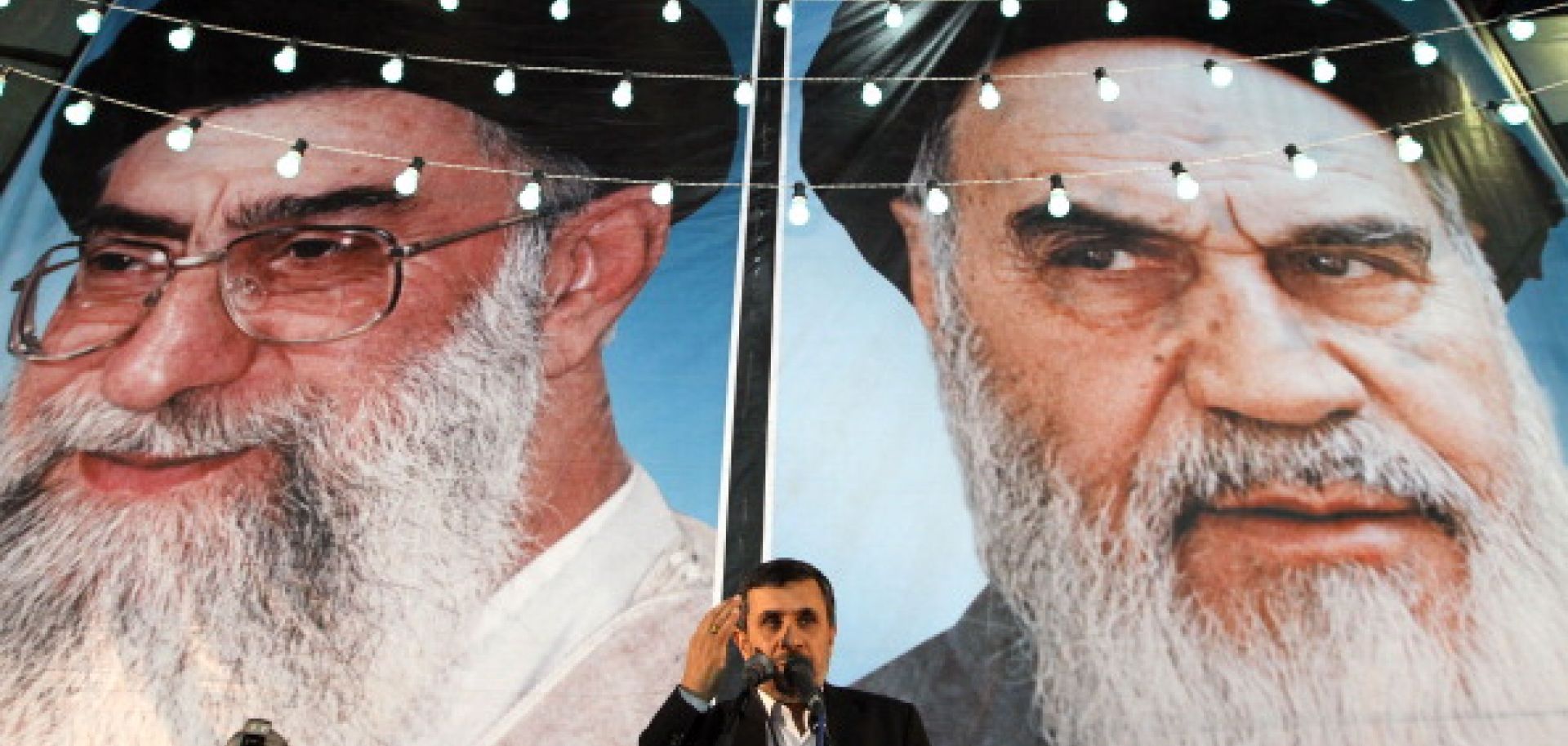ASSESSMENTS
How Power Shifts in Syria Will Change Iranian Politics
Aug 27, 2012 | 10:30 GMT

ATTA KENARE/AFP/GettyImages
Summary
Syria is a critical component of Iran's regional influence. Having a pro-Iranian regime in Damascus allowed Tehran to develop a continuous arc of allies from Baghdad to Lebanon. As international pressure continues to build on Syrian President Bashar al Assad, Tehran must recalculate its regional ambitions and domestic political landscape to prepare for the possible loss of its Syrian ally.
As Iran's interests are challenged on its western flank, international sanctions have triggered growing economic and financial pressure on Tehran. The country's political elite face regional sectarian opposition and domestic economic malaise ahead of upcoming presidential elections in 2013, in addition to the growing competition for authority between the Islamic Revolutionary Guard Corps and Iran's powerful clerics. As Iranian capabilities face an uncertain future in the Levant, the nation's clerics meanwhile will have to work to relieve pressure at home and retain control over the political establishment.
Subscribe Now
SubscribeAlready have an account?
